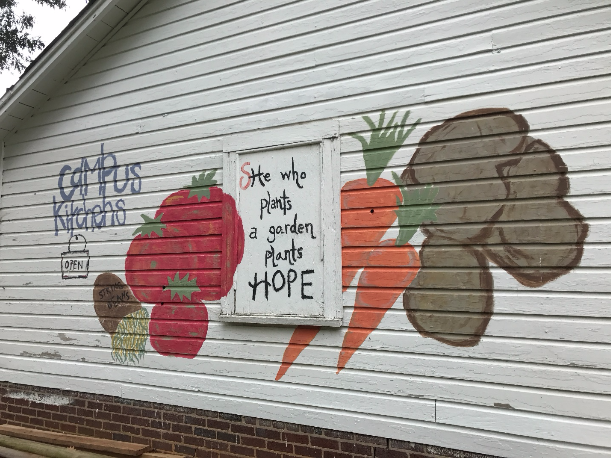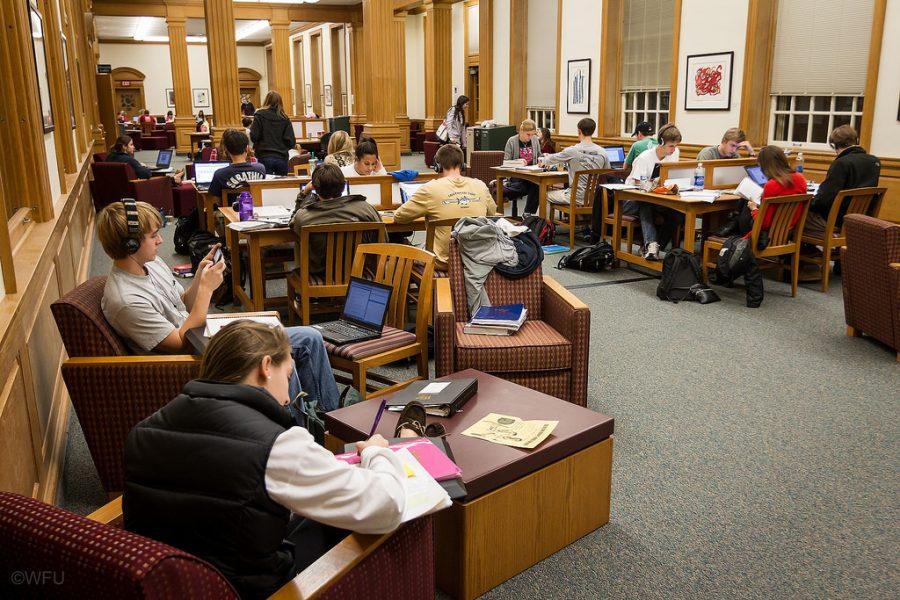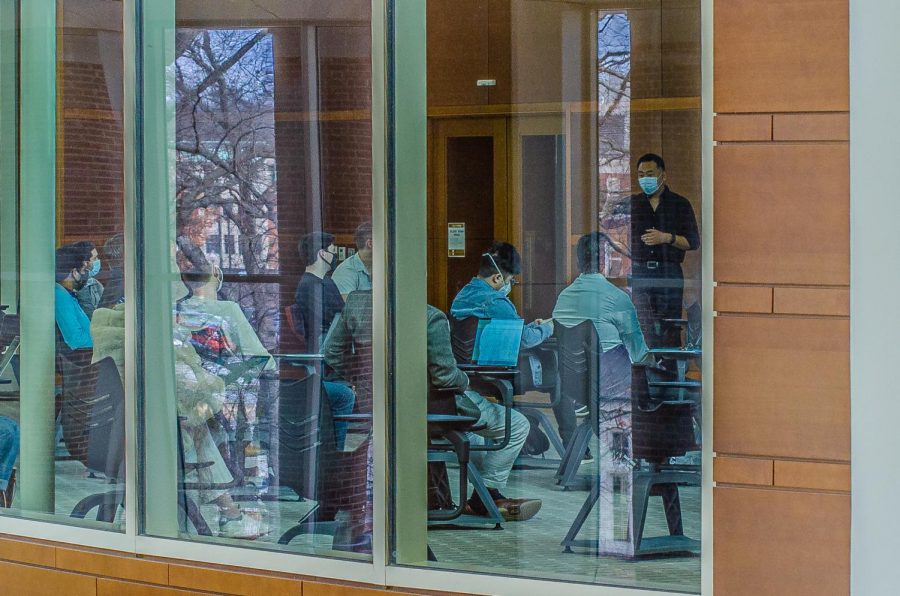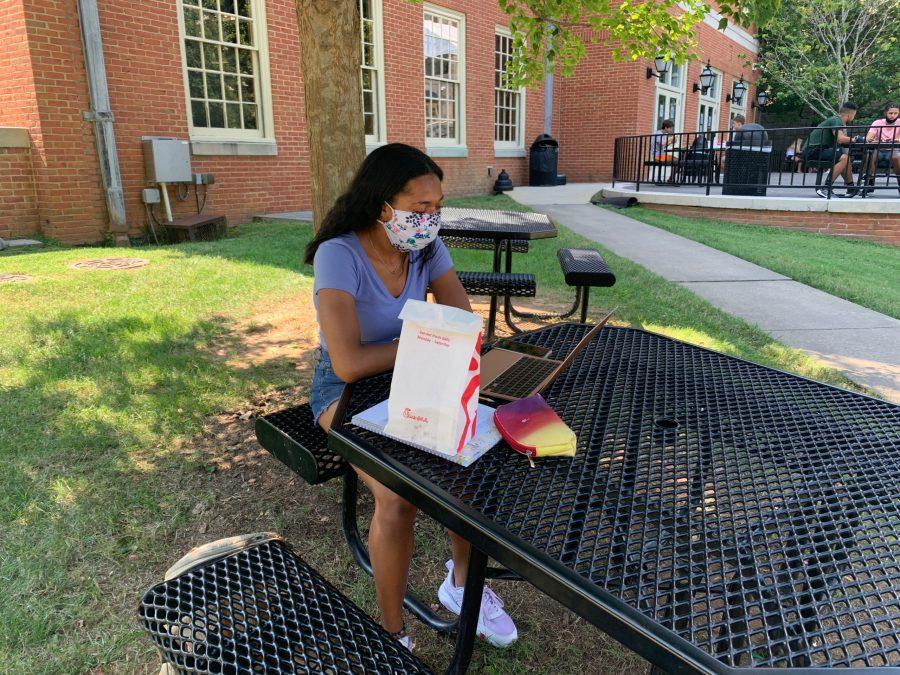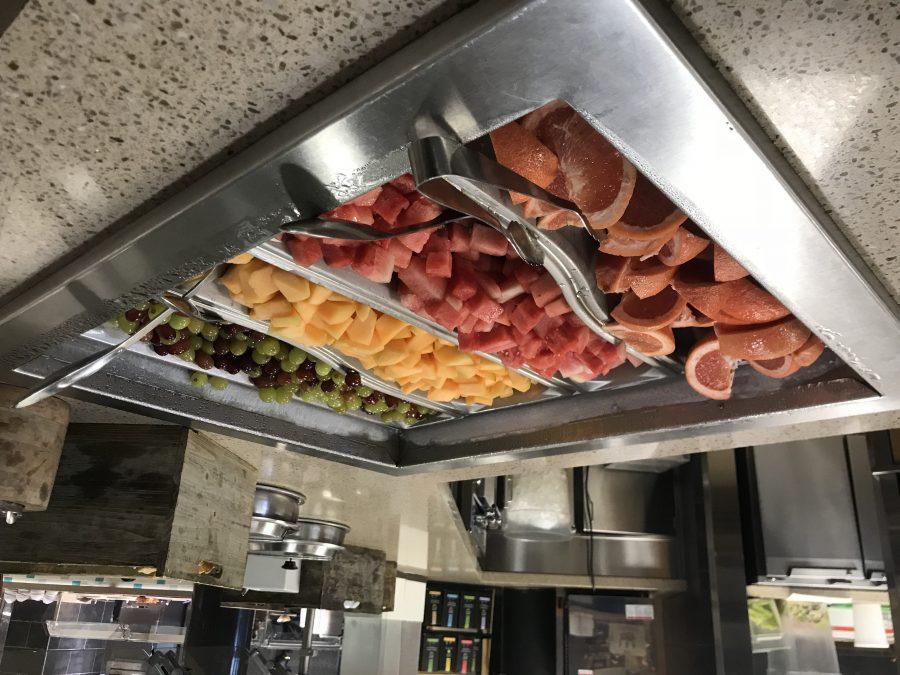While not every student has a green thumb, any student can grow one with Campus Garden. Campus Garden allows students to see the growing process first hand, see the beauty of farming and the blossoming of community.
“I love the garden because it allows me to abandon the role of a consumer, become a producer and, it gives me more autonomy with my food choices,” said junior Cameron Waters, who is one of the Campus Garden interns. “There is a lot of merit in having this physical relationship with the earth I work with, and it gives me more appreciation for the food I have when I witness firsthand everything that goes into the growing process.”
Campus Garden is a student run-organization that is run through the Office of Sustainability and is located just across the soccer field on Polo Road. The garden wouldn’t exist without the volunteers and their hard work. But it also needs the support it gets from the Office of Sustainability.
The mission of the Office of Sustainability is as follows, “To encourage and facilitate the collaborative efforts of faculty, students and staff to generate knowledge, acquire skills, develop values and initiate practices that contribute to a sustainable, high quality of life on campus, in the Triad and across the globe.”
In most ways, Campus Garden accomplishes what the Office strives to do.
At around 3:30 p.m. on Sundays, you can see a handful of students crossing Polo Road for the garden, ready to get dirty and taste produce straight from the ground. Until 5 p.m., the volunteers will listen to Waters as she explains what’s needed to be done in the garden, and there is always work to be done.
Most of the produce grown at the garden is donated to Campus Kitchen, another student run group that is working to bring fresh produce and meals to food deserts within Winston-Salem. But it’s not a one-way street between the organizations. Campus Kitchen brings compostable food items to the garden and picks up the bountiful produce every other day.
But first, volunteers are welcome to take some of the produce and try it out, as well. From the green collards to the plump purple eggplant, there is much to go around.
Brad Shugoll (’13) is the current director of Campus Kitchen and assistant director of Public Engagement at the Pro Humanitate Institute. He praised the garden, both as a student and an administrator.
“The garden is an important testing ground and community partner that allows our campus community to engage in and learn about sustainable gardening,” Shugoll said.
The garden is trying to evolve for both a changing campus and world. The Office of Sustainability and its garden interns are trying to create a clearer picture of food production and provide an experience that shows how to be more connected with the land that produces the food the world needs.
The garden has introduced new initiatives with bringing in multiple bee hives and a small chicken coop. Currently, three chickens reside at the garden: Ruby, Amelia and Freckles. As one walks around the garden, the more extroverted of the chickens, Ruby, will watch from her coop and casually lay an egg that volunteers are welcome to take.
These projects are important parts in how the garden works to be both more sustainable and expand to shape the changing world.
The garden emulates a future of urban farming that Shugoll sees as a growing field in the modern world of agriculture.
While the garden can have implications for the future of urban farming, it is also a relaxing escape from the busy world of Wake Forest.
Waters values the escape that the garden offers for students while just being across the street from campus. With the hard work, community forms on the small garden just across Polo Road.
“I think the garden is one of the most special places on campus because it thrives off of community effort and cultivation,” Waters said.



